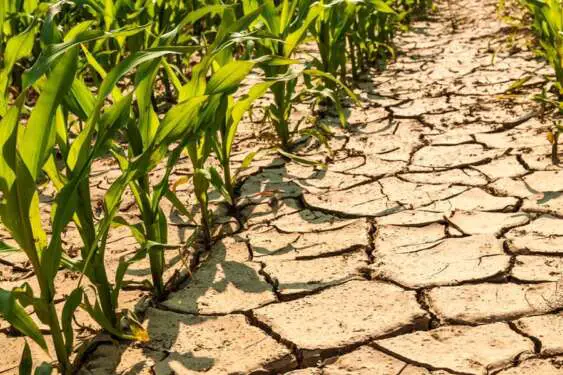Climate change is a 21st-century phenomenon that has called the attention of most governments on planet earth. In Africa, the cost of adaptation is estimated at approximately $2 billion per year in the period 2030-2100.
According to a US-based think-tank, Brookings, research finding point out that, bold climate action could deliver at least $26 trillion in global economic benefits between now and 2030. On another, it could also generate nearly 65 million new low-carbon jobs by 2030.
All these benefits safeguard Africa’s prosperous future which is filled with exciting development projects execute across the region’s vast landscape.
As far as the adoption of new climate economy models, such as phasing our fossil fuels energy structures and ushering in renewables particularly solar and wind energy—which is proving to be useful in East Africa, the role of green banks and climate funds is inevitable.
The African Development Bank (AfDB) and the Climate Investment Funds(CIF) have joined forces to deliver a study of the role of green banks and national climate change funds in mobilizing finance to support low-carbon, climate-resilient development in Africa.
According to Green Bank Network, green banks are public, quasi-public or non-profit entities established for the sole purpose of facilitating private investment into domestic low-carbon, climate-resilient infrastructure.
According to the latest AfDB news publication, the crucial study which was released on Tuesday 23 March, is foreseen to capitalize on the development of a multi-country climate finance initiative in Africa.
As the most exposed region to the gruesome effects of climate change despite being the least culprit to green-house gases emission, Africa is in a position to reverse the climate change scenario from a threat to an opportunity to “dead-bolt” development initiatives, particularly agriculture—with smart farming.
“For countries to better access and mobilize private investment, the climate finance system must reorient toward national financial capacity that can channel capital to projects and markets where it is needed most. Nationally-based green banks are powerful tools to address market needs, and drive private investment,” according to AfDB news March 23, 2021, publication.
In the same context, AfDB engaged over six countries in its study, including Ghana, Zambia, Uganda, Tunisia, Mozambique, and Benin with the sole aim of exploring how the expansion of the Green Bank model in Africa could build country based green finance capacity (AfDB, 2021).
In the same line, UNDP acknowledged how Ghana (one of the countries cited in the study) has been a rather vital figure in the climate action landscape over the past years. The UN agency cited Ghana as one of the few countries that led by example through creating a conducive environment for private sector engagement in the planning and implementation of climate actions.
READ:Why African Development Bank joined forces on climate change
“Having designed emission reduction plans for cooling, cooking and lighting – through energy-efficient refrigerators and clean energy cooking and lighting appliances – Ghana developed an investor guide to attract financing from the private sector for low carbon development,” according to UNDP March 18, 2019, publication.
This means that Africa has the potential to excavate and levitate its development initiatives further from climate change threats—which expose Africa to unbearable economic costs, for instance, the 2020 tropical cyclone Idai—which caused deadly flooding in Mozambique, Zimbabwe and Malawi, brought a $2 billion repair cost burden to the southern African nations.
“The study found that a combination of green banks working alongside national climate change funds has the potential to scale private investment in support of climate and sustainable development goals,” the AfDB news report noted.
Africa’s $2.5 trillion collective GDP can utilize the green banks potential especially in building a country based green finance capacity which fuels sustainable development goals and country-based development targets.
Further, AfDB argued that according to the report, by having a combination of green grant programs and catalytic climate finance facilities focused on how the low-carbon and sustainable development sectors could help to boost private sector participation and mobilize support from global development partner institutions.
“Two sectors stand out as priorities across the study countries: renewable energy and climate-smart agriculture. Green cities infrastructure is another potential priority sector in several of the countries engaged in the study,” AfDB cited.
In the long run, green banks shield emerging economies from catastrophic climate extremes. According to Brookings January 8, 2020, publication, the region’s GDP exposure in African nations vulnerable to extreme climate patterns is projected to grow from $895 billion in 2018 to a staggering amount of $1.4 trillion in 2023—which is nearly half of Africa’s GDP.
READ:Africa’s Balancing Act: Climate Change and the Pandemic
“As we look towards what will be needed to progress from emergency aid relief to medium- to longer-term measures to build resiliency and re-grow developing economies, the role of catalytic, innovative finance capacity to support sustainable infrastructure and social investment through mobilizing public and private resources will be essential,” according to Dorsouma Al Hamdou Acting Director for Climate Change and Green Growth at the Africa Development Bank.
Further, Al Hamdou pointed out the vitality of green banks on a large scale, particularly on economic recovery and improving communities’ lives, especially job creation.
“Green banks and national climate change funds are well-positioned to fill this role and support economic recovery and job growth through the rebuilding of green development sectors such as agriculture, renewable energy, and green cities.” He added.
With more studies and projects aimed at shielding Africa from adverse climate change impacts, the region will develop rather smoothly without being held back by devastating weather extremes.
